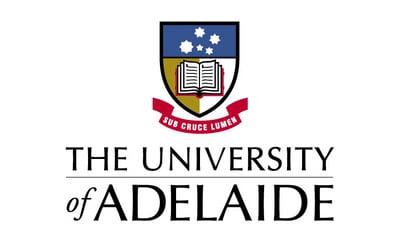Lumen Wirltuti:Warltati 2025 - Flipbook - Page 21

“We’re going to have to look at our
community housing models, the idea of
shared equity,” Stephen says. “Potentially
even like a Netflix or Spotify version of
housing, where someone will pay a
subscription fee, but that means they could
live in Adelaide, spend time in Sydney, go
to the Riverland, for example, and they’ve
always got a house, like a shared model.’’
Ariella Helfgott sees huge future
housing potential in the intersection
of trends between manufacturing and
construction, where as much as possible
is modular and prefabricated after being
planned on a digital platform, enabling
a focus on sustainability, circularity and
reduced emissions, with components
assembled on site.
“We could have a future where all that
technology is harnessed to provide diverse,
affordable, sustainable housing for
everyone, along with new ownership
models,” she says. “The trends I’ve
mentioned are going to disrupt the current
economic model for housing, so there will
be opportunities for a rethink.’’
With Adelaide rated Australia’s happiest
city in 2025, and our continent considered
among the world’s safest places, it would
seem there is scope for shaping a future
that is, if not utopian, something we can
bequeath to the next generations in
good faith.
Stephen Yarwood considers it a moral
imperative to build societal optimism,
unity and resilience in facing the future.
“This is a part of having a mission,” he
says. “This is a part of having a great
education system, rebuilding trust in
government, rebuilding trusting
communities.
“Instead of going around picking fights
and arguing different points of view,
what we really need to do is bring people
together. If there is an ‘anti’ narrative, it’s
because the people who aren’t anti are
not doing enough to enable and educate
people in the power of being optimistic.’’
For Ariella, it is imperative for citizens
to consider the future they want to see.
“I want all South Australians to have
this agency, which is why we called it
SA Futures Agency. I like the double
meaning. The point is to give everyone in
South Australia the agency to shape their
own futures.’’
Jackie Tracy is Communications Coordinator
for the University.
Photograph of StephenYarwood by Isaac
Freeman, photographic editor of Lumen.
Image of Ariella Helfgott by Elle DS
Photography. Main image sourced from iStock.
Museum
of the future
Foresight as a collective responsibility
is an ethos embraced by future-focused
museum, MOD.
For its director, Lisa Bailey, it’s critical
to help young people contemplate the
future with a sense of purpose and
overcome resistance to uncertainty.
“We are trying to build that confidence
and capability to think about how the
choices they make can shape a future that
they desire,” Lisa – a biological sciences
PhD graduate of the University of
Adelaide – says of the museum’s mission.
“We’re not on a set pathway. There are
multiple possibilities, so the decisions and
actions that we make now are going to
impact that future.’’
That’s why MOD. aims to transport
visitors to challenging and even
uncomfortable places – like discussing
death, as occurs in the current exhibition
Forever. In Gen Z parlance, it may even
give people the “ick”, visceral distaste and
discomfort.
Forever concludes with Beyond
Endings, where visitors converse with
Eterna.Life AI team members about their
own mortality and interview for a job
in 2125 where their consciousness or
regenerated self could live on as a cryo
and cyborg concierge, memory
sculptor, de-extinction vet or avatar
couture designer. These roles, of course,
don’t yet exist, although MOD. currently
employs a Futures Officer.
The work of MOD. has been recognised
with national and international awards, as
well as corporate and private philanthropic
support. The Gould Gallery takes its name
LUMEN
from Dr Ian Gould AM – UniSA
Chancellor from 2008-2015 – and his
wife, Christine, whose support reflects
their passion for the pursuit of science.
While humans can demonstrate a
remarkable ability to adapt to and embrace
new technologies, Lisa Bailey believes
what is lacking is the physical and social
infrastructure to manage the benefits
and risks.
“There are more than 50 million
people around the globe using chatbot
companions, for all sorts of purposes –
tutoring, health and social feedback and
so on,” she says. “But it all comes down to
how we are using these advances, are they
helping us achieve our goals or getting in
the way?
“In sci-fi, it’s very easy to go straight to
dystopias, because that’s just imagining a
distant future where we still haven’t
fixed the problems that we have now.
Contemplating a future where we don’t
have those problems is a lot harder
because it requires fixing the problems.’’
For 2026, the MOD. exhibition will,
fittingly, be Beginnings.
“We’re starting a new university, but
also, we’re interested in this idea of how
you start things,” Lisa says. “To shape the
future, you must start in the present.’’
Forever is at MOD. until 21 November.
Entry is free, 10am-5pm,Tuesday to Saturday.
Beginnings opens 13 January 2026.
Written by Jackie Tracy, Communications
Coordinator for the University of Adelaide.
Photograph of Lisa Bailey at MOD. by Isaac
Freeman, photographic editor of Lumen.